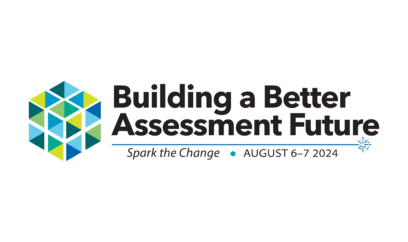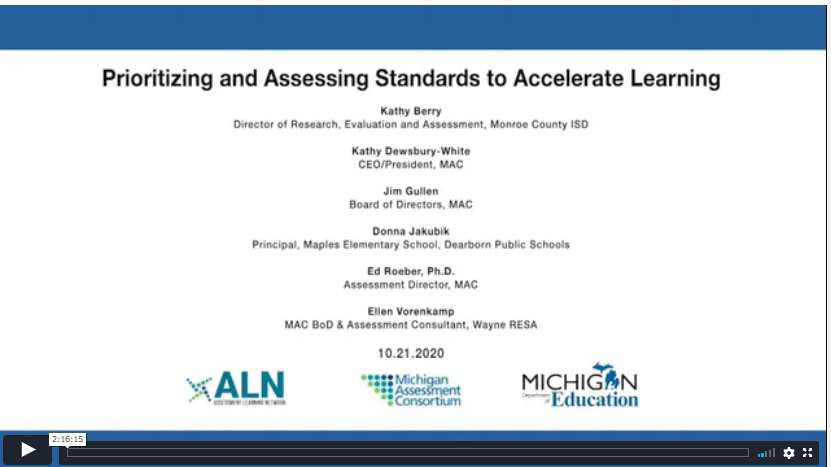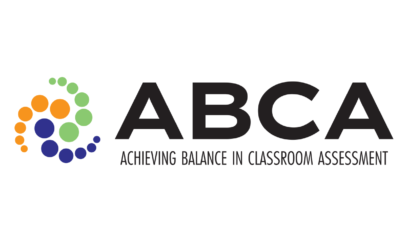
Building a Better Assessment Future 2024
August 6 - 7, 2024Join us for the fourth annual Building a Better Assessment Future conference where we will spark the change to live into new and innovative practices to…

The 2020-21 ALN sessions will explore implications for teaching and assessing in virtual environments. As educators and students embrace the responsibility to impact learning in new distance, virtual, and hybrid environments necessitated by the COVID-19 pandemic, we will amplify and enhance what we know about good assessment practice and its ability to support learning.
When students and their teachers return to learning for the 2020-21 school year, they confront learning interruptions from COVID 19. Prioritizing grade-level standards and focusing instructionally embedded assessments and formative assessment practices on current grade-level standards promises to accelerate student learning. This strategy can help schools avoid the loss of valuable time identifying what wasn’t taught last year, and it provides the most equitable option available for Michigan’s students.
Four principles guide the assessment of prioritized grade-level standards:
This ALN session will introduce and expand upon the the guidance offered in the free Asynchronous Professional Learning Map titled, Prioritizing and Assessing Standards to Accelerate Student Learning. The Learning Map was prepared by the Michigan Assessment Consortium and offered in partnership with MAISA’s General Education Leadership Network (GELN) Continuity of Learning Task Force. It is one of a library of Learning Maps available on GELN’s interactive website to support local professional learning plans and provide high-quality resources to all teachers across Michigan in 2020-21
Event Resources
Prioritizing and Assessing Standards to Accelerate Student Learning (to access specific chapters, open at https://vimeo.com/472498975/7a8a7b0836)




Join us for the fourth annual Building a Better Assessment Future conference where we will spark the change to live into new and innovative practices to…

Learn to facilitate classroom-level, assessment-literate practice to improve student learning & achievement! Districts that implement—with fidelity—quality balanced assessment systems in every classroom show improved student…

The 2024 Assessment Learning Institute (ALI) takes place over a series of virtual engagements that kicks off September 28 or october 5 with an in-person,…

The Assessment Learning Network (ALN) kicks off the 2024-25 season with an in-person engagement that includes learning and networking. Elizabth Birr Moje, well known for…